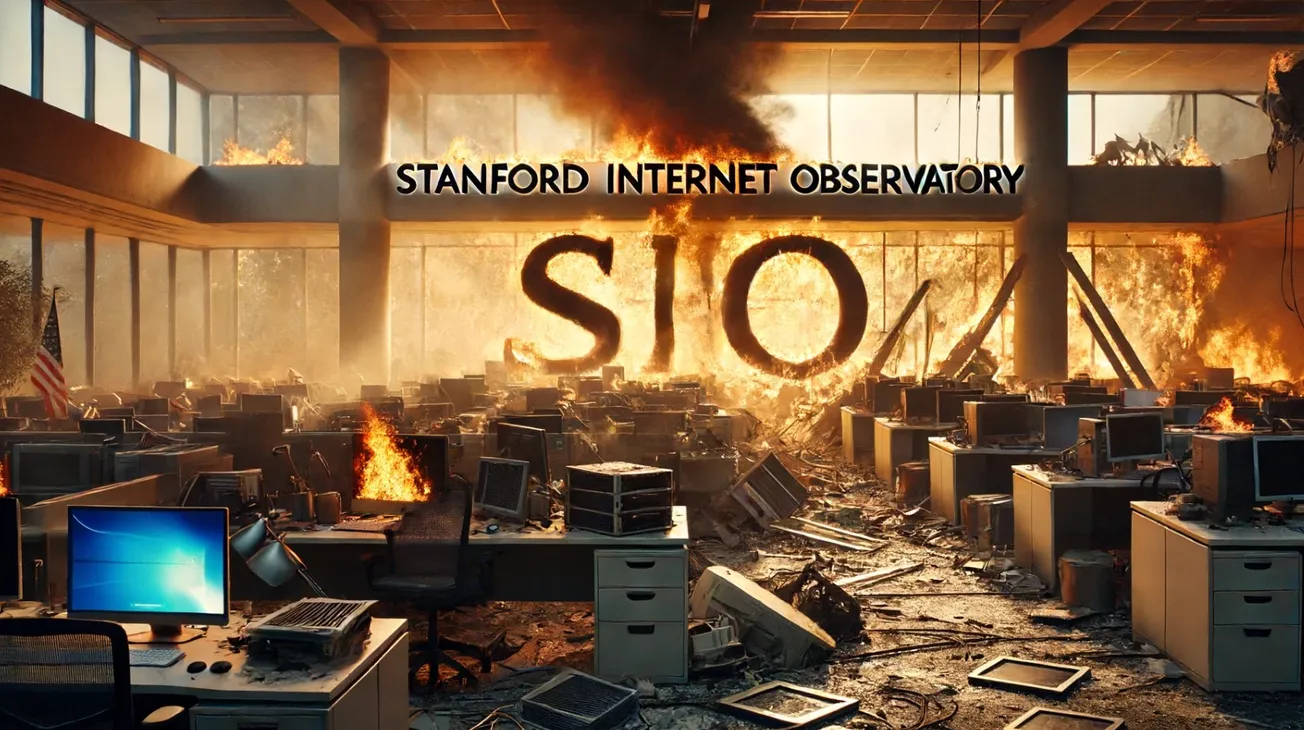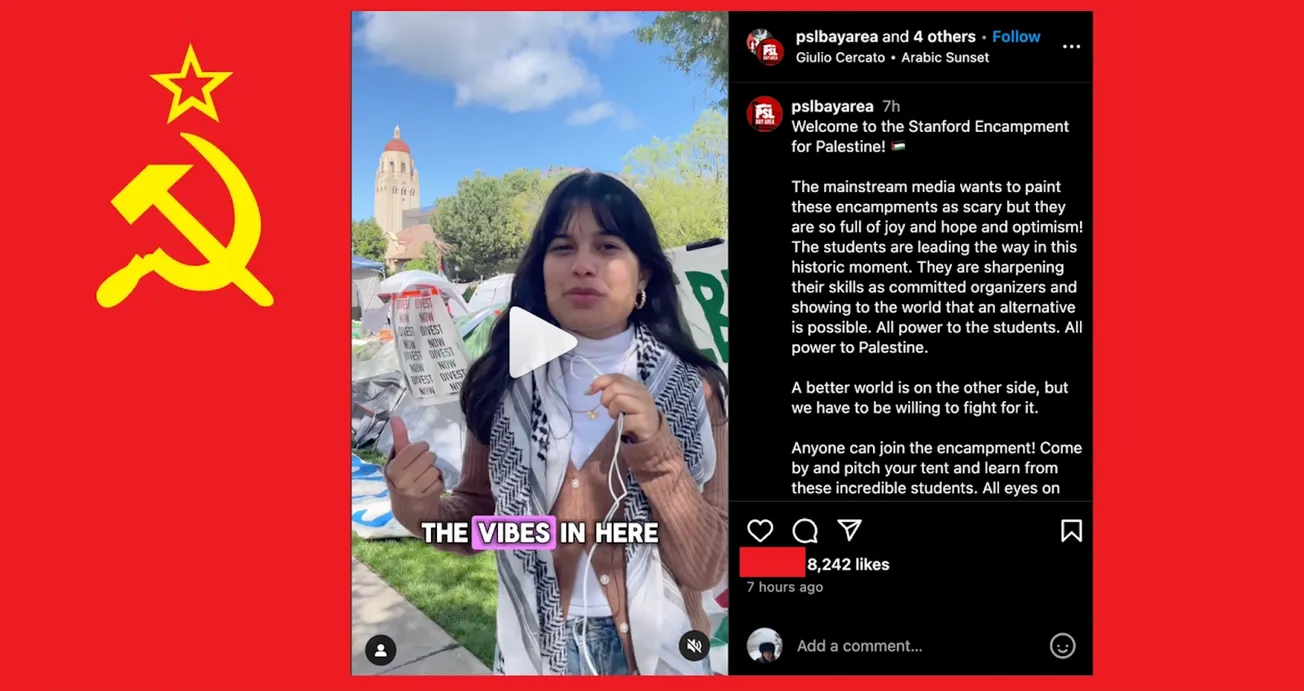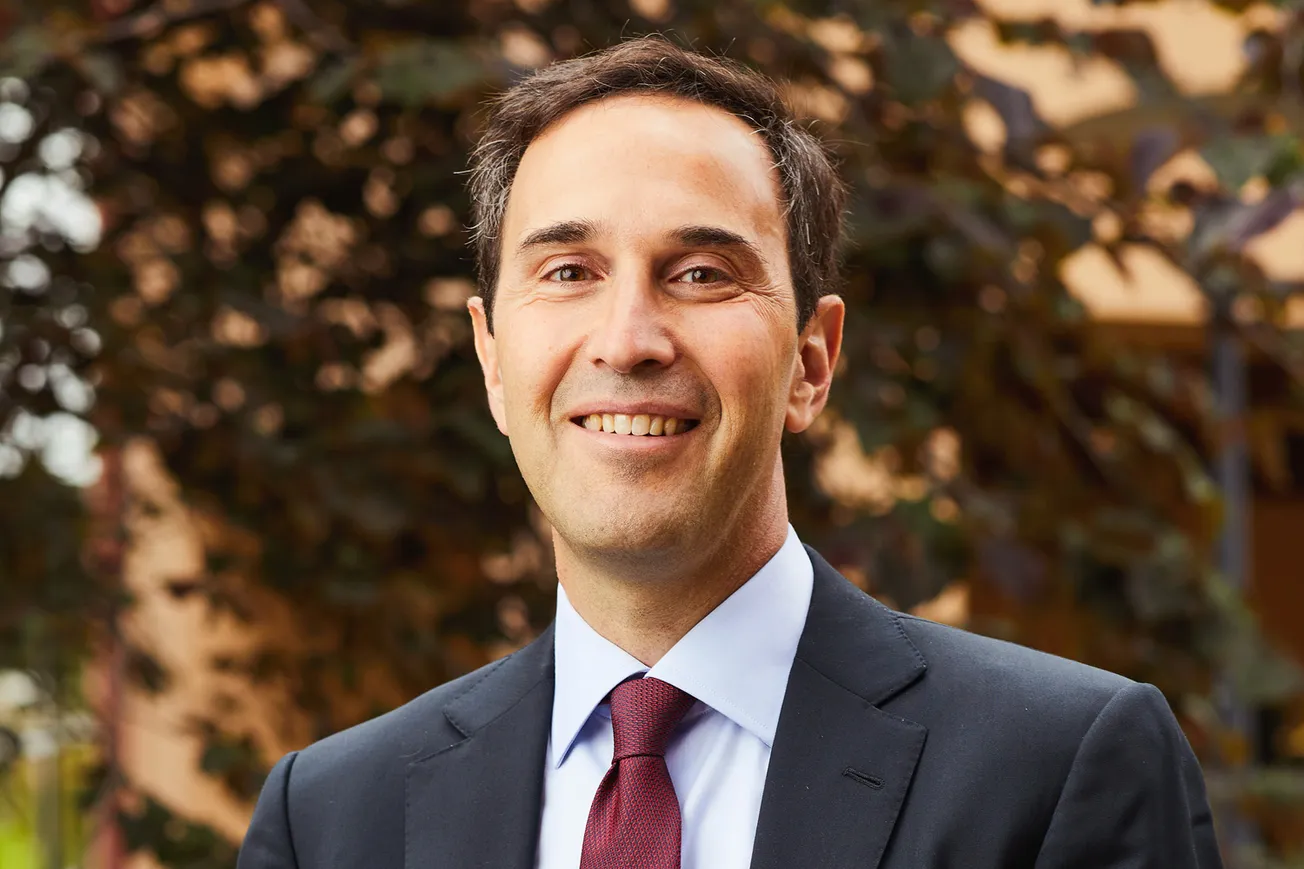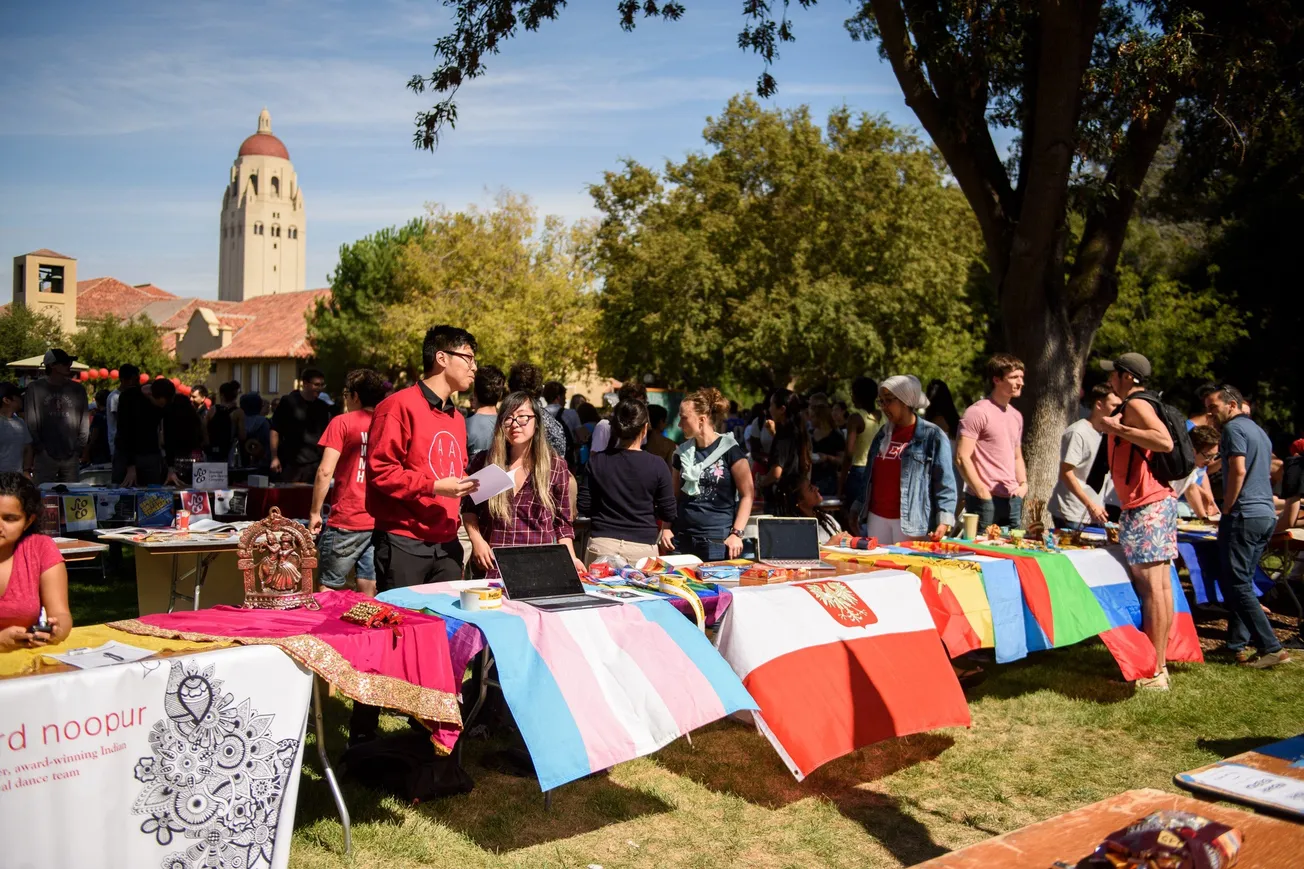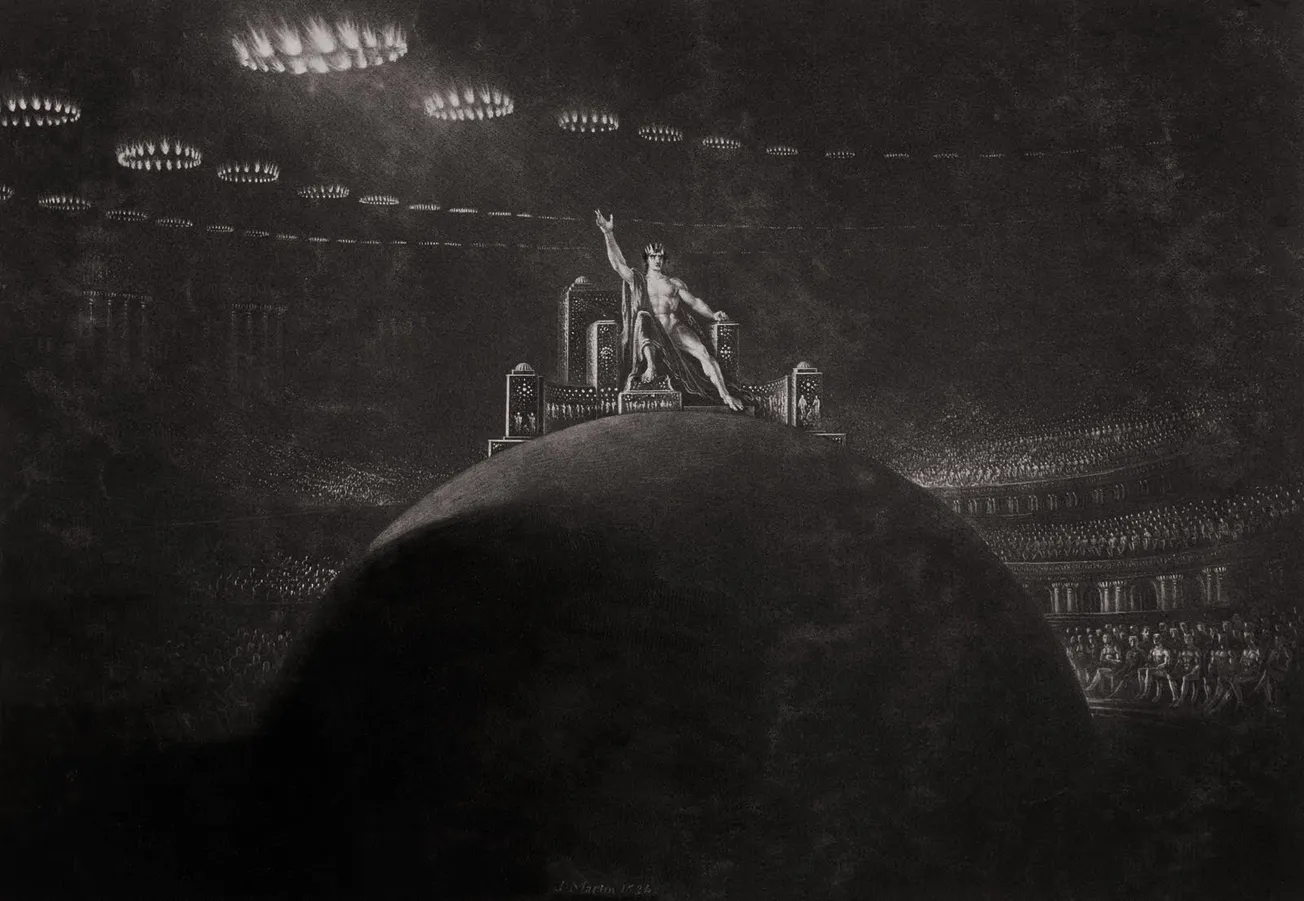Table of Contents
Stanford Review: Thank you so much for speaking with me. You were Provost at the University of Chicago from 2002 to 2007. A few years later, the University of Chicago adopted the Chicago Statement that stated, “without a vibrant commitment to free and open inquiry, a university ceases to be a university.” How has your time at UChicago influenced your view on free speech?
President Saller: I am very much in the Chicago camp. I think the Kalven Report was important and prescient because I believe universities need to be for debate among people who hold different views. My hope is that debates will be respectful and evidence-based, but that’s not for the President or administration to decide. One of the things that really struck me was the fact that back in the 1960s, Milton Friedman was shouted down at the University of Chicago and won a Nobel Prize in economics.
Stanford Review: I don’t need to remind you about the Chicago Trifecta—the Chicago Principles of free speech, the Kalven Report on institutional neutrality, and the Shils Report reaffirming meritocracy as the basis of excellence at the university. In November 2022, an open letter boasting over 1,700 Stanford affiliated signatories asked Stanford to adopt the Chicago Trifecta. Why haven’t you adopted the Chicago Trifecta at Stanford?
President Saller: I don’t have the power to adopt it. The President doesn't dictate that. Right now, the Faculty Senate has a committee that’s working on it. Particularly in my position as an interim, if any principles are going to have any long-term effect, they need to have broader support among the community. Not a President who has maybe another six months to serve.
Stanford Review: UChicago is known for its core curriculum where all students are expected to gain a basic yet rigorous familiarity with art, humanities, philosophy, the social sciences, math, and science. Our version of that now is COLLEGE, a mandatory two-quarter first year seminar. I did SLE [Structured Liberal Education], so I didn’t take COLLEGE.
President Saller: If I could make SLE mandatory, I would. But again, that’s not in my power.
Stanford Review: In a 2023 report, 42 percent of freshmen answered “yes” or “not sure” to a question about whether they feel uncomfortable speaking in class. Many cited fears that their peers would judge them for having conservative viewpoints. Is it possible at this point for Stanford to cultivate a space for genuine free expression?
President Saller: I think we can cultivate it, but I don't think it's straightforward or easy. It certainly can't be done by presidential mandate, but I will say some of the most disheartening reports that I've gotten have been from students—my own students—who have told me that they didn't feel as if they could express their views in class. And that is not the atmosphere that I think we should be promoting.
Stanford Review: How do we fix this?
President Saller: Well, we are designing programs for the incoming class to emphasize the importance of disagreeing in a respectful way. I think in the current environment with the really painful and difficult emotional issues that are on people's minds, it's very hard to have that detached discussion about why this is valuable.
Stanford Review: You came to Stanford at a moment when the University’s relationship with free speech was shaky at best: Judge Duncan, the Elimination of Harmful Language Initiative, the Stanford Internet Observatory, the censuring of Scott Atlas and Jay Bhattacharya, and so on. Stanford ranks 207th out of 248 universities on FIRE’s free speech rankings. How do we fix this? Is it a cultural problem, or can it be solved through top-down implementation of various programs?
President Saller: I think it’s both. I think I need to make it known, and the Provost and I together need to make it known that we value free speech. And it’s essential to our mission. Having said that, I think it’s also a cultural thing. And it’s not as if we have a wand that we can wave and suddenly change everybody’s attitude.
Stanford Review: A few weeks ago, when you spoke at the Classical Liberalism Initiative, you told an audience of faculty that they should just email you to eliminate parts of overly politicized websites. Why don’t you just make this university policy—hire a free speech czar, or even a free speech department, and so on?
President Saller: We have been systematically examining web pages. The difficulty is that there are—I’m not sure—probably hundreds of thousands of web pages on Stanford sites and we have already taken down some. Part of the difficulty is that there's no easy formula if we want to use, say, AI to find these sites, there’s no easy formula for identifying them. So we do have a consultant who is systematically working through web pages to identify them, and we’re taking them down.
Stanford Review: Is it not your mandate to just hire a group of two or three staffers and just have them work on the issue of institutional neutrality full-time?
President Saller: You raise the issue of an increase in staff. I have a strong aversion to hiring extra staff, so we can see how the current approach works and how effective it will be. We are also taking a proactive position with the upcoming election, and making it clear that university policy is that administrative staff, including the President, cannot make partisan political statements with our office or with our office attached to it. Now, staff can take political positions on their own personal websites, but not with their affiliation as, say, a department chair or a department manager.
Stanford Review: The physics department is just one of many that requires a DEI [Diversity, Equity, and Inclusion] statement for prospective candidates. And DEI statements are, to some extent, inherently political. How is this requirement not an affront to institutional neutrality?
President Saller: We have left it to departments, and this was in place before I started as interim president. We have left it to departments to make their own decision about that, but we’ve made it clear that after the Supreme Court decision [against affirmative action], the statement cannot include a direct statement about race. So you’re right to identify this as an area that has ambiguity. And I think that’s why it’s been left to the departments.
Stanford Review: Do you think that leaving it to the departments is enough considering the summer of 2020. This was before my time at Stanford, but I've seen evidence that departments were mass emailing about BLM or Trump. Is that not aligned with institutional neutrality? And can the President’s office do anything to crack down on those emails?
President Saller: So we are, as I said, putting out a proactive statement about our policy and we will deal with people who violate it. When I was dean of Humanities and Sciences in 2016—when there was another tense election going on—I actually called out and stopped department chairs from issuing political statements.
Stanford Review: You have talked a bit about institutional neutrality and, to me, this is a big way your administration has broken from Tessier-Lavigne’s insofar as you have publicly committed to institutional neutrality. In a letter released October 11th, you wrote alongside Dean Jenny Martinez that, “We believe it is important that the university, as an institution, generally refrain from taking institutional positions on complex political or global matters that extend beyond our immediate purview, which is the operations of the university itself. Maintaining university neutrality allows for our individual scholars to explore them freely.” You also noted that this was a sharp change from the status quo. What role does institutional neutrality play in a world in which universities are incubators of activism, rather than educational institutions?
President Saller: Well, I don’t think we should shut down the student interest in activism. That would be counterproductive to institutional neutrality. But I think we need to make it clear that the University’s mission, as I have said repeatedly, is excellence with integrity in research, education, and clinical care. And dedication to genuine advances in knowledge and dissemination of that knowledge is our core mission. If students then want to use that to then follow through with activism, that’s their choice which they should be free to make.
Stanford Review: How do you see the relationship between education and activism?
President Saller: Well, I would hope that people’s activism—their political views—would be informed by facts, by research. I think it’s fundamental. If we don’t take that position, then universities have no reason to exist. If it’s just a matter of politics and everybody's own voice, we can do that without universities.
Stanford Review: Don’t you think the events of the last few months show that is the case? That slogans have taken over thoughtful debate?
President Saller: No, I don’t think so. I think there are areas of discourse where sloganeering, I think, is a real problem. But I don’t think that accounts for even five or ten percent of what the University is doing. Most of the research and classes are going on just as before.
Stanford Review: I've heard from many Jewish students that days after October 7th was not the right time to say that the University will not take a firm position on institutional neutrality. Why do you disagree?
President Saller: I disagree because I think the following weeks have shown that this war in Gaza is an issue that sharply divides the campus, and having an official pronouncement about taking sides would be counterproductive.
Stanford Review: But didn't you take sides after the House committee meeting where presidents of Harvard, UPenn, and MIT were grilled?
President Saller: So, we did issue a tweet denouncing genocide. And the reason that I was prepared to do that with the Provost was that I’ve not talked to anybody or heard anybody on campus who endorsed genocide. That seems to me to be about as fundamental a position as one can take. I don't think that divides the campus. If so, we judged that there was a greater risk in having external political entities—Congress—controlling our discourse on campus.
Stanford Review: Only a few weeks after October 7th, a group of students calling themselves the “sit-in to stop genocide” started camping out in White Plaza, a campaign that went on for 120 days. It’s seen by students that your administration removed their belongings from White Plaza after 120 days, after sit-in representatives agreed to a series of conversations with the administration. Most students, in my experience, see this decision as an affront to free expression. Others see it as keeping order. Guide me through your decision making to evict the sit-in after 120 days.
President Saller: Well, so first of all, despite what some of the sit-in supporters say, camping is not a right that falls under the First Amendment. There’s actually a 1983 Supreme Court decision specifically on that question, so it is not. We let it go on, despite our policy, for as long as we thought it was not a threat to safety, and we obviously did a lot to try to ensure the safety by hiring extra security to give 24/7 monitoring. After the storm that blew over the Blue and White Tent, and the encroachment that followed, we were told that tensions were rising and that there was an increased danger of more serious conflict among the parties there. And also that there was non-compliance with the fire code. So it was at that point that we insisted on taking down the tents.
Stanford Review: Representatives for the sit-in agreed to meet with you in exchange for leaving White Plaza. Can you tell me about those conversations?
President Saller: So, they gave us their demands and we had what I think was a frank discussion about what the University can and can’t do, and they were not satisfied with that, obviously. The compromise that we reached was that I would draw the attention of the trustees to their issues, which, of course, the trustees already knew about, so that was not a big concession. And then they agreed to a timeline to take down the tents.
Stanford Review: So what can the University do and what can’t it do in respect to the sit-in’s demands?
President Saller: This is still very much a matter of discussion. There is a process—a petition process—for divestment, and that was the issue that they seemed to be most concerned about. There is a process of petitioning the trustees through the committee: the Stanford Advisory Panel on Investment Responsibility. And we’re waiting on their petition, but there was a petition almost ten years ago and it was declined. It’s ultimately the trustees who have the fiduciary responsibility to make a decision about this.
Stanford Review: Is there any chance that Stanford will boycott, divest from, and sanction Israel?
President Saller: I’m not going to get out ahead of the decision in that process.
Stanford Review: Why not?
President Saller: Because that would be counterproductive. If we have a process in place, we need to let it play out. All I can say is that there was a petition almost ten years ago, and that petition was denied. Whether the circumstances are sufficiently different now to change the mind of the trustees, I don’t know.
Stanford Review: What punishment do you think that the eighteen students who were detained by police during the Parents Weekend Q&A should face?
President Saller: Again, that’s a matter of processes; not my decision, not my judgment. The students who were cited have a court date—as I understand it—in April, and they will be taken through the Office of Community Standards process. But the office of the President doesn’t have any voice whatsoever in the OCS process.
Stanford Review: What is it like being confronted with students at, let’s say, Parents Weekend Q&A or Midnight Breakfast?
President Saller: It’s painful to be confronted with their anger and grief. And I have to come to accept that it’s part of the President’s role to suffer through that. And over the past five, six months, five months, I have been criticized from all sides. And I’ve come to see that no matter what I say or think, I’m going to have critics.
Stanford Review: To me, it seems that Stanford is at a crossroads between activism and meritocracy. Activism is written in the Doerr school’s founding documents. Both undergraduate and graduate admissions committees say that they are looking for activists. Are the two irreconcilable?
President Saller: I think they can be reconciled, but I don’t think that one ought to be identified with the other. Right now, after the Supreme Court decision a year—almost two years ago—we’re in serious discussions about criteria for admissions going forward and whether we want to place a different emphasis and I think we have to continue to be a meritocracy and then activism will in some cases follow, but not inevitably.
Stanford Review: Why do we have to continue to be a meritocracy?
President Saller: Because that’s the only reason for universities to exist. And this goes back to what I said before. If this is just a matter of political activism, this could take place in many other settings. We’re about the pursuit of knowledge and that involves meritocracy.
Stanford Review: I think in some ways meritocracy has become a dirty word: “You are standing up for the establishment; meritocracy has been a tool of the establishment.” How do you respond to that?
President Saller: I’m a historian who goes back two thousand years and I can see the progress in knowledge that’s come through recognition of excellence. That’s fundamental to my values.
Stanford Review: You're a historian. The past few Stanford presidents have been in STEM or the hard sciences. How do you think your experience as a historian has given you different insight in the leadership role you're in?
President Saller: I don’t know enough about the backgrounds of the previous presidents. I had a Stanford history alum speak to me—and he was a young man who got a job in tech—and I asked him about what in his history studies helped him, and he said it was knowing that through history, issues have been complex and messy, and how to think through those issues where there are competing views, competing values, competing motivations. And so I think that together, with a long-term optimism based on knowing a lot about the Roman world, I think false nostalgia is something that I will never subscribe to and in my courses I try to counteract.
Stanford Review: Speaking of nostalgia, Izzy Meyerson, a transfer from UChicago, wrote an op-ed in the Stanford Daily about her expectations coming to Stanford. She wrote that, “The school where fun goes to die was somehow doing a better job at facilitating a flourishing social scene than the school which I was promised was so much fun that it basically felt like summer camp.” I see your administration all but eliminated the neighborhood system. You’ve also funded the On Call Café. What else are you doing to reverse ‘Stanford hates fun”?
President Saller: I just offered additional funding for an additional Social Dance 1 section. So I think I probably have a bit of a different view, and this is actually related to what may be your next question. I think, you know, we want to support students self-organizing, but I don’t feel as if I am the one who ought to be telling students how to have fun. That seems bizarre to me. And the whole idea of an administrator telling students how to have self-organized irreverence seems like an oxymoron.
Stanford Review: Many students blame Stanford’s current climate on its administrative bloat. As of Fall 2023, Stanford has 18,369 staff members, and 17,529 students. Do you think administrative bloat is a problem?
President Saller: There's actually an article in this morning’s Stanford Daily about the increase in staff. I don’t know whether you saw it; I didn’t actually have a chance to read it because I only noticed a minute before our start time. But there's a fair bit of information in there that’s helpful. So I am concerned with staff growth, and I try to resist staff growth that doesn’t serve the mission. Having said that, the kind of standard criticism in the national media about staff growth is so much of what we do. I mean it’s focused on education, which is essential to our mission, but it’s only a fraction of what we do. So our mission includes research and clinical care. In the area of clinical care, that’s where most of the growth is, and it brings in more revenue than it costs. And so I would ask people, do you not want doctors available? I mean, come on. And, in research, our research funding is up substantially. In the first four months of the academic year it was up 17 percent. That research funding involves hiring staff researchers, research scientists, program administrators; and again, the funding came with the increase in staff, so most of the staff growth is in areas that are funded for that purpose. It’s also true that there's been an increase in staff for student services, as you know, a fair bit if that is in CAPS and so again, it’s serving the students. That’s not to say that there isn’t staff growth that is not serving the purpose of the mission. I’ve asked that we get better data and the Provost has to get better data on where the growth is and what the justification is.
Stanford Review: When you say growth that's not serving the purpose of the mission, you're talking about, say, administrators who decide when frat parties can and can't happen?
President Saller: Well, I’m still trying to understand exactly where it is. So one interesting suggestion—and I don't know, we haven’t fully examined this—is that right now, an administrator considers a request, or a proposal, or a submission of various kinds and has to go up a whole chain of administrators We switched to a policy where, unless it’s of the importance of something like a tenure decision, which is a lifetime decision—one of the most important decisions we make—that if it’s a principle expense, for example, that only the supervisor needs to approve it. That way, we do not have a whole chain of people involved in a decision than really ends up costing more to decide than the cost of the actual request.
Stanford Review: I know we’re out of time, but I have one quick question. Do you want to continue serving as Stanford’s president?
President Saller: I know that’s not my decision.
Stanford Review: In an ideal world?
President Saller: If so, I’ll say this much. It would be an honor. I’ve come to understand that there's widespread respect for the office of the president of Stanford. And I'll give you just one amusing example from a couple weeks ago. A fair bit of this job is ceremonial and among the ceremonial bits, a couple weeks ago, I welcomed the Crown Princess of Sweden, Princess Victoria. The first thing she said to me was—she's in her 40s I think—was “my twelve-year-old daughter is irritated with me because I didn't bring her along to Stanford, because that's where she wants to go to college,” and I thought that, you know, what a wonderful sort of anecdote about the reputation of Stanford around the world.
Stanford Review: All right, that's our time. Thank you so much President Saller for speaking with me.
This conversation has been lightly edited for clarity and grammar.


